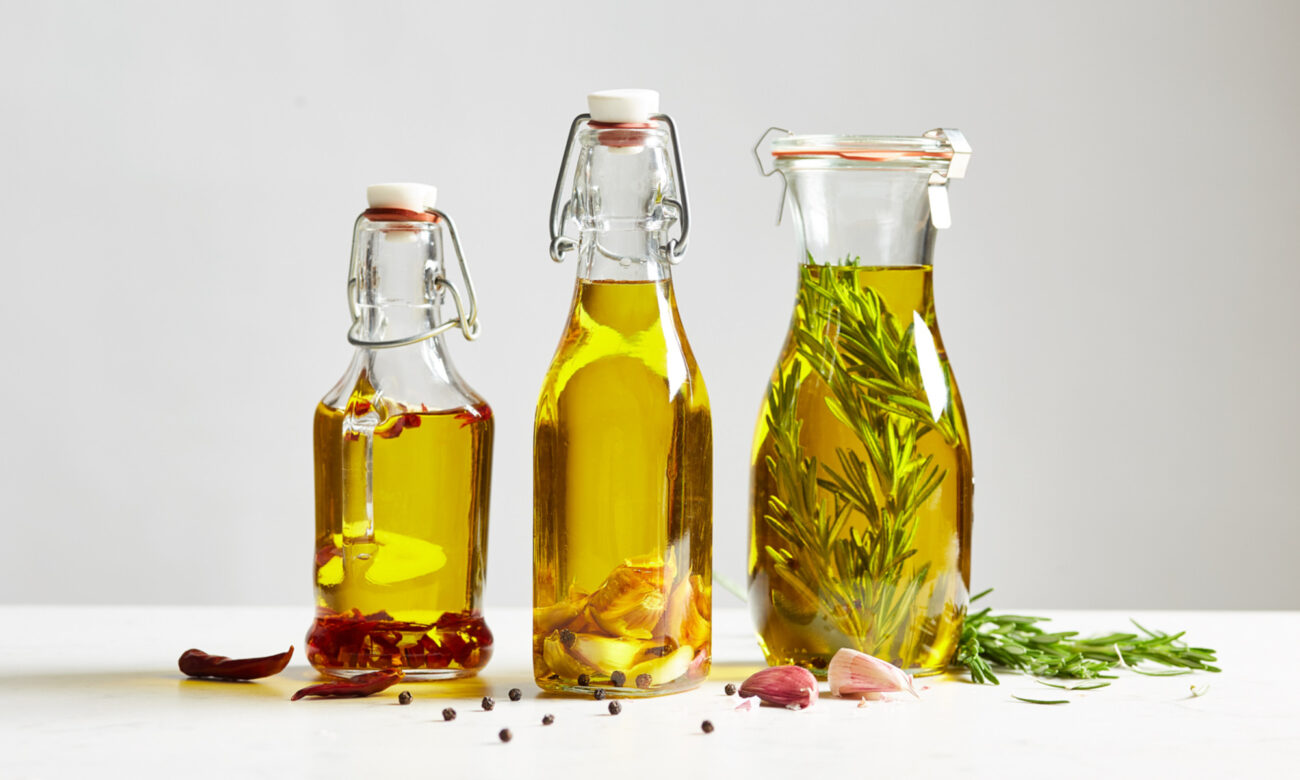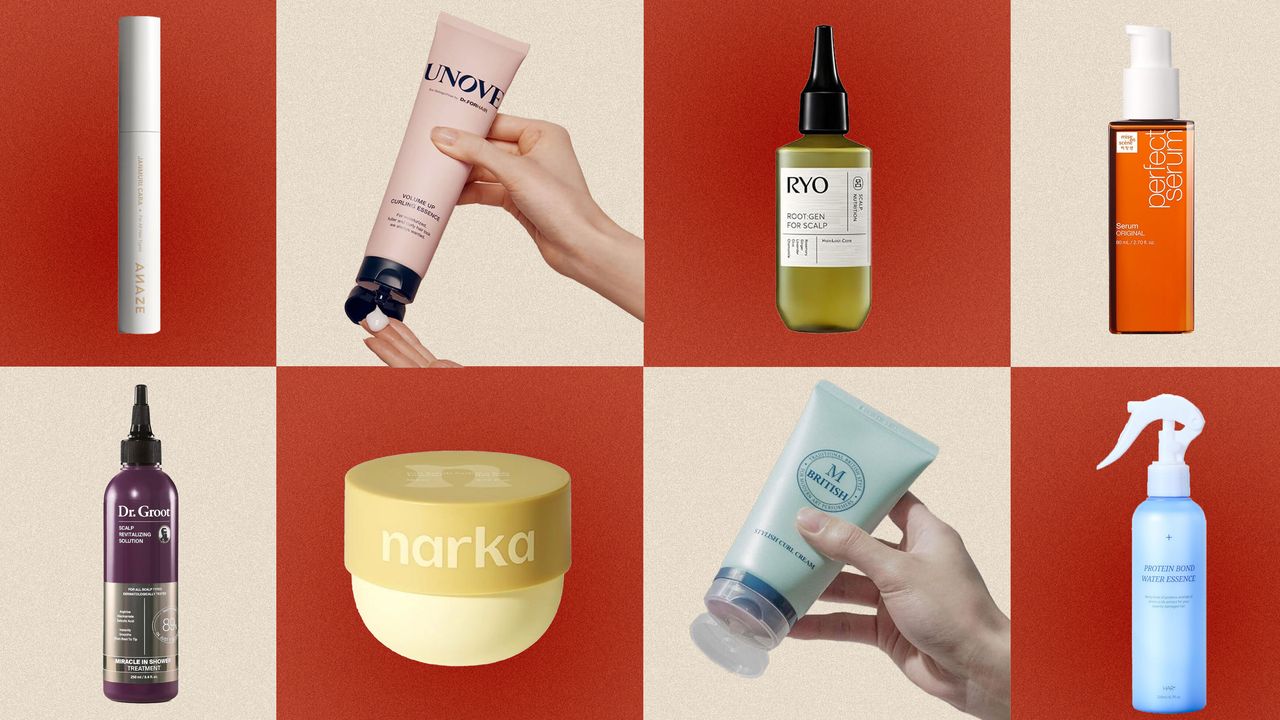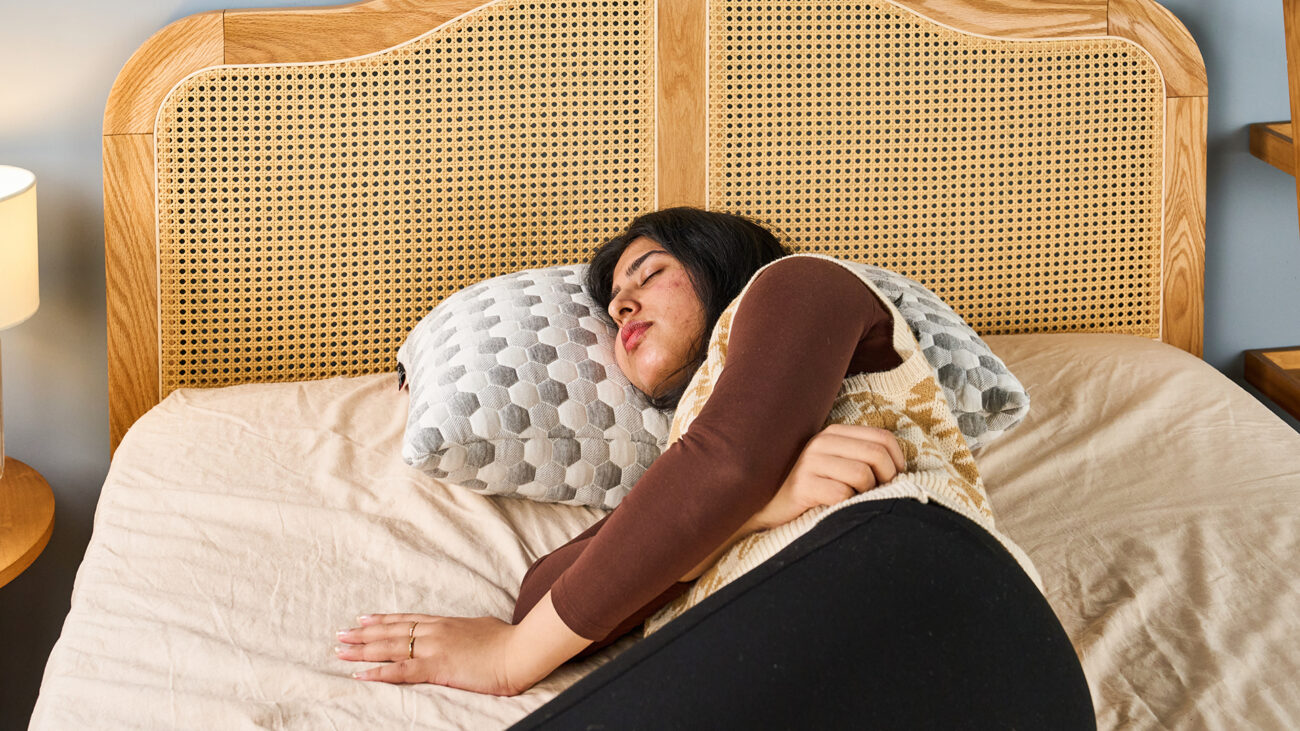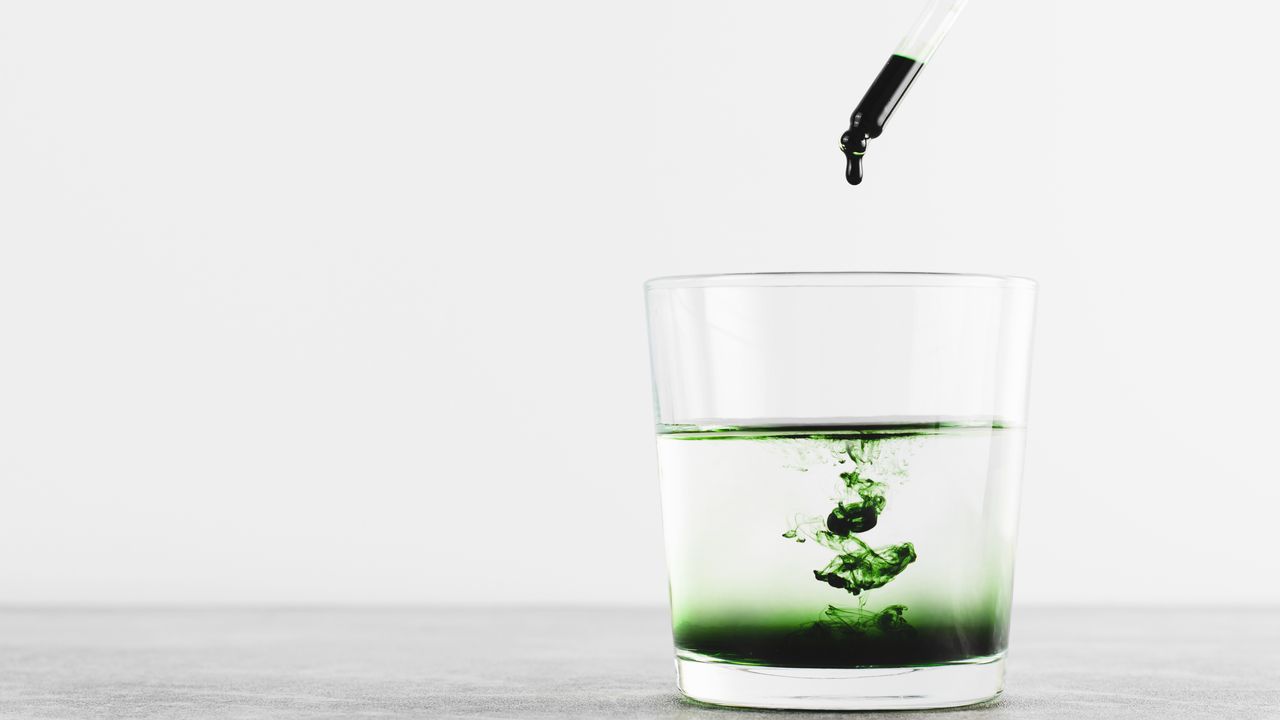Blog
What Evidence and Experts Say
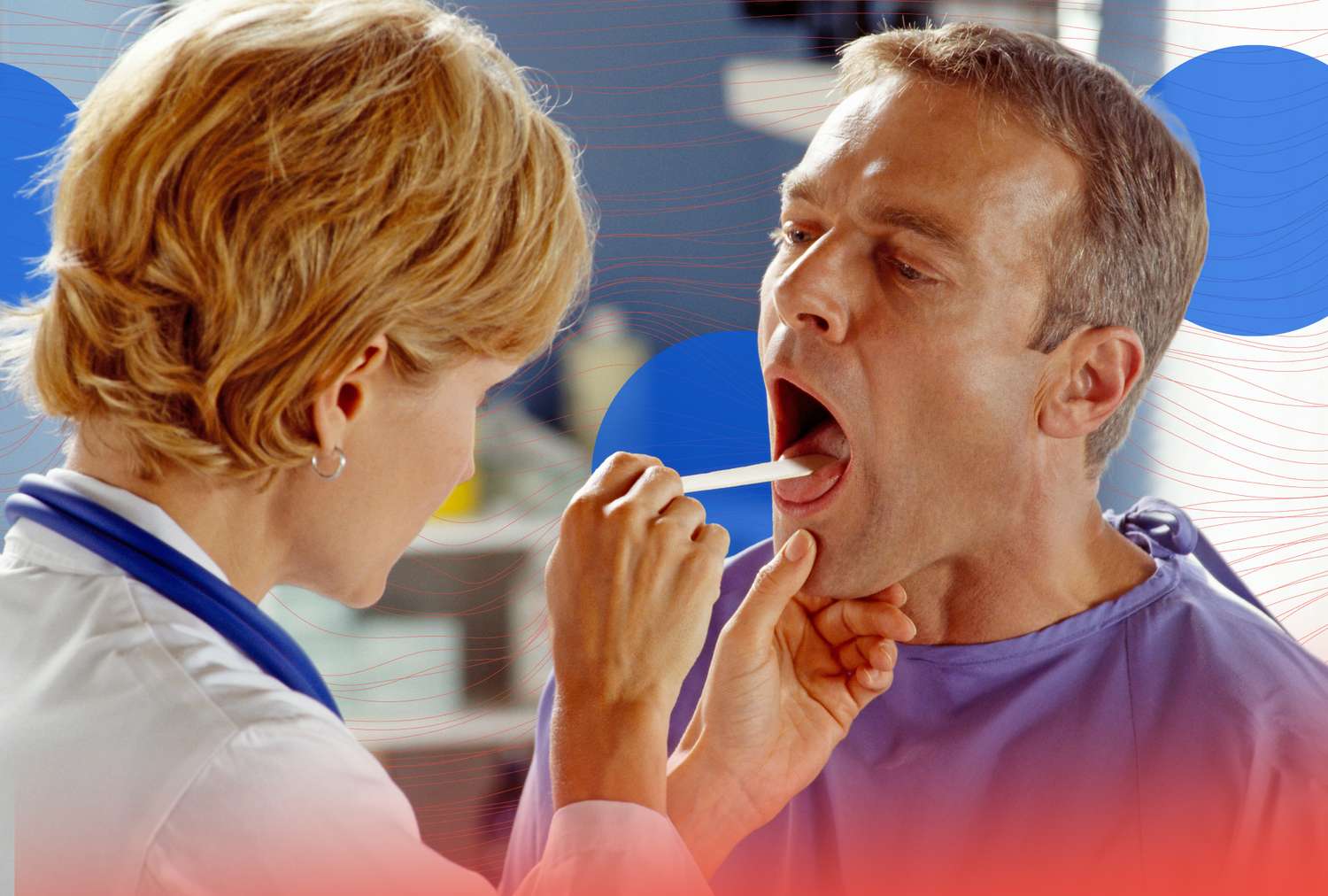
- Alcohol is a carcinogen that increases your risk for oral cancer in multiple ways.
- It promotes inflammation, damages cells, impairs nutrient absorption and more.
- Fortunately, there are steps you can take to protect yourself.
We don’t hear about oral cancer very often, but more than 50,000 people in the U.S. are diagnosed with it every year. Oral cancer doesn’t just target the tongue, gums and mouth. It can even extend to the back of the throat. Like other cancers, what we eat and drink can substantially impact our odds of developing oral cancer. And one major risk factor is alcohol, says Carol Sullivan, M.S., RD, CSO, LDN, a board-certified oncology specialist. The link is so strong that alcohol is classified as a Group 1 carcinogen, meaning that there’s a strong body of evidence showing it may cause cancer.
So what does that mean for you, especially if you enjoy a glass of wine here and there or love a good cocktail? To find out, we took a deep dive into the research and spoke with experts. Here’s what you need to know about alcohol and oral cancer, plus other lifestyle strategies to help you reduce your risk.
How Alcohol May Increase the Risk of Oral Cancer
Might Lead to Changes in Your Microbiome
Your gut microbiome, which is made up of trillions of live bacteria, actually starts in your mouth. And research reveals that alcohol can promote changes in your oral microbiome that increase the risk of gum disease, which is a known trigger for oral cancer.
That’s not all. Alcohol’s adverse impact on the oral microbiome can also raise your risk for other cancers by increasing body-wide inflammation, encouraging tumor growth and suppressing your body’s immune response. And as alcohol makes its way from your mouth, down your throat and through your stomach to your intestines, it continually interacts with your GI tract. When it finally reaches your gut, it can cause unfavorable changes in your gut microbiome, too.
May Damage Your Cells and DNA
“Alcohol gets broken down into a chemical called acetaldehyde, which is toxic and can damage your DNA, increasing the risk of cancer,” notes Sullivan. Acetaldehyde is so harmful that the National Cancer Institute lists it as a “probable carcinogen.”
“Plus, alcohol itself can help other substances get into your cells more easily,” says Sullivan. That allows other carcinogens and chemicals that come into contact with your mouth and throat to be more easily absorbed, providing yet another route to oral cancer.
Can Promote Inflammation
We hear a lot about inflammation lately. While short-term inflammation is nothing to worry about, chronic inflammation can lead to all sorts of health issues, including cancer. Drinking alcohol can increase the body’s production of inflammation-promoting substances called free radicals. That resulting inflammation goes on to trigger a process called oxidation that can damage your cells’ DNA. If this happens on a regular basis, it may set the stage for cancer.
May Cause Nutrient Deficiencies
A nutrient-rich diet may protect against cancer. Yet, alcohol impacts your ability to digest and absorb many of the very nutrients shown to keep cancer at bay. “Chronic alcohol use can cause nutrient deficiencies of folate, Vitamin A, Vitamin C and Vitamin E, which are important for proper DNA synthesis and repair, and act as protective antioxidants,” explains Sullivan.
Drinking alcohol also impairs intestinal absorption of many vitamins and some minerals, including iron, zinc and selenium. It may additionally alter fat, protein and carbohydrate absorption.
If that weren’t trouble enough, alcoholic drinks themselves, whether it’s wine, beer, spirits or cocktails, carry very little nutritional value and can sometimes cause loss of appetite.
Strategies to Reduce Oral Cancer Risk
There is a long list of factors that can raise your risk of oral cancer, says Chad Libraty, D.D.S. Here are the ones to look out for, plus expert tips to help reduce your overall risk.
- Load up on produce: Not only will adding lots of colorful fruits and vegetables to your plate help you get more nutrients overall. Produce is jammed with nutrients that may also ward off inflammation and support your immune system. In particular, citrus fruits—think grapefruit, oranges and lemons—have been linked to decreased oral cancer risk. This is likely due to their ample vitamin C content.
- If you use tobacco, seek help quitting: If you smoke or chew tobacco, talk to your healthcare provider about resources to help you quit. Tobacco is linked to roughly 85% of oral cancer cases, as chewing tobacco or smoking cigarettes, cigars or pipes delivers a high dose of carcinogens. Second-hand smoke exposure also increases your risk. Also good to know: “Alcohol added with tobacco use can exponentially increase your oral cancer risk,” says Libraty.
- Rethink how you cook red meat: A recent review study found that eating lots of red meat is linked to increased oral cancer risk, particularly if it’s fried, smoked, roasted or boiled. That’s because cooking meat at high temperatures triggers the development of carcinogenic compounds called polycyclic aromatic hydrocarbons (PAHs) and heterocyclic aromatic amines (HAAs). If you do eat red meat, try to lower the cooking temperature as much as possible and keep cooking times short.
- Wear sunscreen: Your lips are part of your mouth, so be sure to put SPF on. Many lip balms now come with built-in sun protection. To further protect your lips, try to limit time spent in direct sunlight. In addition to seeking out some shade during peak sunlight hours in the afternoon, wear a hat to help shade your face and mouth.
- Go to the dentist: Practicing good oral hygiene, like brushing and flossing regularly, isn’t just important for the health of your teeth. It can promote better oral health. This can minimize the risk of infections and other conditions that may lead to oral cancer. Regular dental check-ups are also critical for keeping up a healthy mouth, as your dentist will check for oral cancer to spot any early signs.
- If you drink, scale back: You probably figured this one was coming right? “Alcohol is a known carcinogen, like many other carcinogens the dose is what makes the poison,” says Libraty. Research shows that even light drinkers are almost twice as likely to develop oral cancer as nondrinkers. And heavy drinkers are about five times as likely. If you do imbibe, consider saving that drink for a special occasion.
- Know your family history: “If someone had a family history of cancer, minimizing or eliminating alcohol is a great idea,” says Libraty. If oral or any other kind of cancer runs in your family, speak with your healthcare provider to determine how much alcohol is safe for you.
- Consider an alcohol-free alternative: “For a lot of people, the ritual of preparing a drink and sitting down to relax or socialize is bigger than the alcohol consumption,” says Sullivan. “Right now the market for mocktails, zero-proof spirits and non-alcoholic beer and wine is growing.” So, take full advantage!
Our Expert Take
The link between alcohol and oral cancer may not make headlines, but it’s real. Drinking alcohol may increase the risk of oral cancer via several mechanisms. Because alcohol is a carcinogen, it may promote inflammation. With repeated exposure over time, this can potentially lead to cancer-causing changes in the cells of your mouth and throat. Alcohol may also raise oral cancer risk by prompting unfavorable shifts in your microbiome and impairing your ability to absorb protective nutrients.
That said, you don’t have to panic over the occasional drink. Alcohol’s effects are dose-dependent, meaning the more you drink, the more harmful it is. If you do drink, do so in moderation. Or, try swapping your usual cocktail for a mocktail, trade in your craft brew for a non-alcoholic version or just reach for sparkling water over bubbly champagne. Whether you decide to drink less or not at all, cutting back on your alcohol intake can benefit your health in many ways, including reducing your chances of oral cancer.



